Creating Safer Healthcare
Compassionate Healthcare for a Safer Patient Experience
Self-Paced, In-Depth, Trauma-Informed Care Course for Medical Professionals and Their Teams

TRAUMA-INFORMED CARE IS ABOUT CONNECTION, COLLABORATION & CHOICE.
They come to you exhausted. They come to you with hope. They come to you eager and inspired or timid and scared. They come to you because they want the safety and support they may have never been given before.
WHAT IF…
…you could feel steady, capable, and at ease knowing you had the tools and emotional bandwidth to create an environment for yourself and your patients that allowed you both to drop your shoulders and lean into care?

A program delivered with integrity and deep understanding
“I wish I had been exposed to training like this earlier in my medical career. As a doctor I was only taught about “big T” trauma. The insight this course has given me is invaluable - it has made me realize how pervasive “little t” trauma has been in my own life, both professionally and personally. I finally feel like I can bring my whole self to my practice, and I can’t begin to tell you how liberating that feels.”
SHELLY BHOWMIK, MD, MPH
“What makes Shelby’s approach different from other therapeutic relationship techniques is that the focus is on establishing a way of being. It’s my way of being that creates a safer space for the patient to thrive in our relationship. While other programs tell you what to say and what not to say, Shelby’s courses teach you ways to adjust your own nervous system, step into leadership with kindness and compassion, and speak in a way that does not activate (AKA “trigger”) a trauma response in another person.”
ALETA ADAMS, RN
Asante Hospice
Prescribed Credit and Contact Hours for Healthcare Professionals
Provider (Jen Atkisson - JentheNurse LLC) approved by the California Board of Registered Nursing, Provider Number #17338 for 8 contact hours.
American Academy of Family Physicians - This learning activity has been reviewed and is acceptable for up to 8 prescribed credits by the American Academy of Family Physicians. Physicians should claim only the credit commensurate with the extent of their participation in the activity.
Other healthcare providers in the US (physical therapists, midwives, massage therapists, naturopaths, acupuncturists, etc.), check with your board! You most likely qualify to earn these 8 contact hours.
JOIN
CREATING SAFER HEALTHCARE
An online, go-at-your-own-pace course on practical, in-depth, trauma-informed training and everyday shifts in care — for doctors, surgeons, holistic practitioners, techs, nurses, office assistants, and staff.
$645-$325 OR 3 MONTH PAYMENT PLAN
Offering inclusive pricing options. To recognize the value of the work that goes into this program, and to generate some funds to support participants with fewer resources, enrollment in Creating Safer Space is available at three price options.
Everyone has trauma, and even if patients look fine, they're often managing an incredible amount of nervous system activation while they’re in your office.
You likely learned about PTSD in your professional training, and how to refer out if a patient tells you they have PTSD, but the trauma we’re talking about is in the room with you every day.
Many patients are grappling with fight, flight, freeze, and other trauma responses behind the scenes. When people are experiencing those reactions, they're living in the past or in the future. When we can help them be right there with us in the moment, we’re better positioned to create genuine safety and connection, so patients can truly show up for their treatment plans and collaborate with their care.
Tending to developmental trauma, as you’ll learn in this course, is pivotal to unlocking so much that gets overlooked in other “trauma-informed care” courses. In this program, you’ll learn about Advanced Childhood Experiences (ACEs) and their impacts, as well as how to respond to the unique manifestations of early trauma.
Now more than ever, it is CRUCIAL to be trauma-informed. And from a practitioner’s standpoint, you’ll notice a dramatic increase in positive outcomes and referrals as soon as you start implementing some basic skills and practices pertaining to trauma awareness.

INTEGRATE TRAUMA-INFORMED CARE
People don’t need to relive the stories of their past in order to heal and move forward in a thriving way. When we’re trauma-informed, we’re not digging for the root. We’re not putting the pressure of an agenda on the client. And we’re not trudging through the darkness to purposefully rehash the past. It will come up in the present, if it wants, within time.
Improving patient/provider relationships
Increasing patient/provider collaboration
Increasing adherence to treatment plans
Improving the professional working environment
This course is about reframing everyday patient/provider interactions, eschewing impersonal models that rely on scripts—like asking and phrasing questions in a specific way—and emphasizing instead the provider’s role in BE-ing.]
As busy healthcare professionals, there are many small, simple steps we can take to increase our humanity—and our efficiency—while truly hearing and being heard by our patients and colleagues.
Embolden your patients by embracing the reality of the trauma they carry. Provide safer healthcare without glossing over their fears and tiptoeing around emotions.
You don’t need to have the answers, you just need to be human. It’s about meeting patients in a way that makes them feel cared for. It’s about providing the care they hoped to get from day one and the care that no one else is giving.
complete care
designed FOR all healthcare providers
Creating Safer Healthcare is designed to give providers and their staff, in all healthcare arenas, the tools to help them fully support patients no matter what histories their bodies carry.
Allowing your full humanity to shine through can be difficult no matter your medical background.
Doctors
Nurses
Medical Techs
Holistic Practitioners
Lab Assistants
Office Assistants
Bodyworkers
Physical Therapists
Trauma-Informed Care is not just for mental health professionals anymore.
Imagine a world where everyone is supported by trauma-informed care. Imagine the ease patients could feel knowing that they are being held and supported.

“Being cut off from our own natural self-compassion is one of the greatest impairments we can suffer. Along with our ability to feel our own pain - go our best hopes for healing, dignity and love.”
— Dr. Gabor Maté
course details
When you sign up for Creating Safer Healthcare, you also get access to:
31 VIDEOS
Demonstrating simple, powerful tools and practices for creating safer space, so you KNOW you’re setting patients up for the best possible experience with you. ($2000 value)
GUEST EXPERT VIDEOS
And guided practices from industry experts centered around creating safer space. The how-to and theory of practice. ($1500 value)
LIVE VIRTUAL HOURS
With Shelby so you can ask your questions in person. (Priceless)
GUIDED AUDIO
Practices containing loads of examples of how to use what you’re learning in your own teaching.($350 value)
PRACTICES
Step-by-step practices you can use with your clients and students (or even yourself) to help them ground, center, and resource. ($350 value)
COMMUNITY PLATFORM
Access to a private community platform for connecting with other course participants and getting answers to all your lingering questions. (Priceless)
13 Modules of Creating Safer HEALTHCARE
-
Shelby welcomes you to the course. Experience firsthand what it might be like to show up to a trauma-informed session. Get acquainted with what's happening and why. Take some time to become present and to drop into your intentions for moving through CSH.
-
Understand the science of trauma and its contributing factors. Explore how health and healthcare can support the healing of trauma from a science- and research-based perspective. Learn the various types of trauma and nervous system responses from Shelby and Stephen.
-
Experience the art of creating SAFER space and how to show patients from the very first touchpoint that you are trauma-informed and they are welcome to show up as fully as they can. Shelby breaks down why she says "safer" instead of "safe".
-
Shelby, Renée, and Jen offer various techniques and perspectives on how to help patients feel more at ease right away in your care (and the care of your entire team).
-
Shelby shares a secret known by psychotherapists for decades that will help you understand the beauty and power of the relationship as a care provider, along with simple tools to support trustworthy and connected care.
-
Power dynamics are inherent in the relationships between care providers and their patients. By understanding and acknowledging them we can learn to SHARE power, which creates more ease in the connection. By increasing patients’ sense of resiliency and empowerment, we enhance the likelihood that they will support the collaboration and follow through on treatment plans. Shelby, Jen, and Renée offer impactful shares around this concept for a variety of clinicians.
-
Judith unpacks the term “Brave Spaces” and how to meet patients with identities different from our own with cultural humility, curiosity, awareness, and compassion.
-
Jen speaks to leaders and educators in medical settings about how to create a safe space for their teams so they can feel more regulated in their nervous systems and, in turn, deliver even more supportive care to patients.
-
Learn how to spot trauma when it's showing up in your patients (even when you can’t see it or they're not telling you). Shelby shows you how to respond skillfully and effectively when active or past trauma arises.
-
Shelby introduces concepts around sexual trauma that normalize and connect you with your patients instead of leaving you feeling stressed and nervous. Explore new ways of helping them feel understood, cared for and supported, whether you're providing hands-on or hands-off care.
-
Get comfortable making mistakes and owning them for your own peace of mind and the peace of mind of your patients. This is the gift that keeps on giving, both in your personal and professional lives. Renee and Shelby put forth an easy process for how to meet these kinds of challenges when they arise.
-
Understand connections between early trauma and complex and chronic health conditions and how to tend to these types of traumas as they arise during treatment. Shelby and Stephen expand on the importance of the relationship in these kinds of care experiences.
-
Nervous System Regulation is a lifelong practice. Experiment with several types of practices to support your ongoing steadiness while working with patients. Share these techniques with them as well and notice—even in a minute—how quickly they become more present to your care.
These 13 in-depth modules will help you and your team learn how to deeply care for every patient, no matter what traumas they carry and how their nervous systems react to them.
join
Creating Safer HEALTHCARE
Compassionate Healthcare for a Safer Patient Experience
The culture of healthcare has long been one of pushing past, pushing through, and pushing hard. As in many other specialized education settings, it might often feel like we’re being asked to rely only on our brains instead of feeling into our whole bodies.
Working in the fast-paced world of urgent care can leave us feeling like we can’t prioritize or support our patients at the level of their humanity — or even take a moment to pause and recognize our own.
BUT, I HAVE A QUESTION FOR YOU…
What might it feel like to work in, live in, and embody an environment that felt DEEPLY SUPPORTIVE of your own nervous system and its limitations, as well as those of your patients and staff?
What would it feel like to make simple changes in how you approach your work life, changes that would ripple out and create a calm and nurturing state of mind for your patients long after they leave the walls of your practice?
patient care
True Trauma-Informed Care
Begins Inside Your Own Nervous System.
You can’t just say you’re trauma-informed, you have to BE it.
This course will support you in:
Recognizing, responding to, and caring for nervous system and trauma activation in your clients
Bringing empathy and care to the internal and external challenges patients are navigating in their lives
Cultivating a grounded and patient-centered presence in your patient interactions
Regulating activation in your nervous system to respond, rather than react, to challenging patient experiences where blame and upset are present
Learning the science behind adverse childhood experiences (ACEs) and its manifestations as health challenges and healing opportunities in adult patients

a safer space for you too
“This should be required for all providers however more specifically to those in Labor and Delivery as many women are victims of trauma.”
Have you seen the statistics? They’re off the charts. Out of all professions, doctors and healthcare providers have some of the highest levels of trauma, and many providers don’t even know they’ve been impacted by it.
Whether it’s trauma from what you’ve seen, how you’ve been trained, or your own complicated history (including generational trauma or marginalization), there’s just so much to carry.
By utilizing the tools and resources of the CSH course to create a trauma-informed practice, doctors and providers give themselves the opportunity to thrive by bringing their nervous systems steadily into balance, freeing them to operate in their zones of genius.
Yes, this course is designed to benefit your patients. But it’s here just as much to benefit you.
Learn to regulate your nervous system, embrace all that you’ve come up against, and lean into a supportive community of peers with similar experiences.
MEET THE GUEST EXPERT TEACHERS

“Shelby Leigh has created a one of a kind program, like nothing else in the healthcare and trauma informed communities.
I found this program to be uplifting, empowering and wonderfully put together. Because of this program, I know I have a greater awareness and ability of taking care of my patients holistically taking into consideration all of their parts and needs.”
ASH-LEE JEANNE, CNA
WHEN YOU JOIN
CREATING SAFER HEALTHCARE
You’ll learn how to implement these trauma-informed techniques:
Welcome patients from the very first touchpoint so their nervous systems feel more settled
Assess before you act (respond instead of react)
Build trust and safety to proactively prevent trauma responses
Identify when someone is having a trauma response and how to respond to it skillfully
Support your own nervous system so you feel balanced and centered in your work
Understand how choosing trauma-informed language can positively impact relationships with patients and colleagues
Deepen awareness of how language can exacerbate or ease a trauma response
Experiment with nervous system regulation techniques that you can use for yourself and your patients
Make sense of someone’s trauma response so you can assist in curating their treatment plan
And many more

impact
"I appreciate the explanation of trauma because I think it is misunderstood by many folks and you have made it easily understandable. I found it a refreshing reminder of the fact that most of us have trauma induced lack of resiliency in some aspect or another of our being. I love that your path to healing is about encouraging resilience and resourcing; it reminds me of the idea that flooding a room with light just naturally makes the darkness go away - no struggle involved. No further trauma, either. I can use this in both the casual and more formal conversations with our clients in behavioral health settings. Our patients have a very high incidence of repeated trauma and this is definitely applicable and worth listening to more than once."
K.J.
RN (Bend, OR)

Who am I?
hi
I’m Shelby Leigh.
I have a master’s degree in Somatic Psychotherapy, two coaching certifications, numerous certifications in the treatment of trauma, and nearly 15 years of direct client care as a therapist, consultant, and coach.
I specialize in working with clients with high ACE scores and chronic and complex illness and PTSD. What’s become clear to me is that the relationship is a huge part of what determines a patient’s ability to receive care. Whether it’s the “hello” at the reception desk or the exam in the treatment room, creating safety in the relationship is THE pathway to helping patients feel present and really receiving the care you are providing—and to treatment follow-through.
I want you to be able to tap more fully into your AUTHENTIC VOICE, DEPTH OF SKILL and DEEP SENSE OF CARE with wisdom, compassion and confidence, so you can TRUST in your ability to create a safer space for your patients to heal.
FAQs
-
Creating Safer Healthcare is structured in bite-size segments. Most of the videos are around 20 minutes long. You could watch one each day for a few weeks or take time to integrate each new module before moving on (which would take about 4-6 weeks). I recommend the latter to really absorb all the information!
There are over 20 hours of content, including instructional videos, audio practices and examples, and guest teacher interviews. As a bonus extra (on top of the 20 hours of course material), the interactive call recordings are a great supplemental resource to see how other Creating Safer Healthcare participants are applying these tools in their practices and to learn from the questions they ask.
-
We are aware that you are not always in charge of how fast or slow you can go with patients, but our hope is that this course will help you regulate your nervous system—and that of your patients—within the parameters of your specific role so that you naturally feel more at ease regardless of organizational limitations. In other words, yes, this program is ESPECIALLY for practitioners working within a larger (broken) system of care.
-
This is an INFORMATIONAL and EXPERIENTIAL series. You won’t be a trauma expert at the end of it, but you WILL be trauma aware and trauma informed. You’ll have a lot of tools at your disposal to support your patients so that you feel super confident when they’re in your care.
This course is about creating safe spaces for your patients with trauma so they feel more resilient, resourced, and held, and so that the trauma they carry doesn’t overwhelm them while they’re in your care. In the end, they’ll be more receptive to the care you’re providing.
This course doesn’t help you directly heal and/or resolve trauma—that’s for more specialized trauma therapists and requires a much longer training process. However, patients may find incidental healing through these practices and methods of creating togetherness.
-
Yes! When you click “I’M IN!”…
You’ll be directed to a payment page
Once payment is received, you’ll receive an email with access to the course and an invite to join our private Circle group, where you can ask all your questions and say “hello.”
Inclusive Pricing
I do not want cost to be an obstacle for participation in professional development and learning to Create Safer Spaces in our world.
This pricing system is intended to be a map, inviting each of us to take inventory of our financial resources and look deeper at our levels of privilege. It is a way to challenge the classist and capitalist society we live in and work towards economic justice together as a community.
Participants who can pay the Grow price for this course create the capacity for people in need to access support and everyone’s needs are met. My intention is to make this work accessible to everyone who wants to join us, while also honoring the depth of this work, all that has gone into it, and my invaluable team.
Money Back Guarantee
We believe so strongly in the quality and depth of the Creating Safer Healthcare course, I confidently back it with a 30-Day, Money-Back Guarantee. I want you to dive in and experience the full wealth of this course without worrying about whether it’s right for you.
This series brings you simple, reliable, easy-to-apply tools and practices that will have a profound impact on the space you hold for your patients every day.
If you’re not satisfied, just contact us within 30 days of purchase and we’ll refund your money.
No questions asked.
“This course is so clearly about applying trauma informed practices. That feels really potent and really good…You also take really big and scary and daunting concepts and make them really relatable and human and gentle.
I was so awestruck at something about your energy which was… the way you hold trauma… your ability… your capacity to be present with the trauma field in a group of people.
I have never felt anything like that. I also love that your examples from your personal life really bring the content alive and make it really relatable and clear.”
DARA H.(Ohio)
JOIN ME IN
CREATING SAFER HEALTHCARE
If you think it’s time we improved our approach to systematic care, make this your first step toward being part of the change.
$645-$325 OR 3 MONTH PAYMENT PLAN
Offering inclusive pricing options. To recognize the value of the work that goes into this program, and to generate some funds to support participants with fewer resources, enrollment in Creating Safer Space is available at three price options.

































